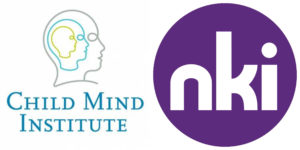
The COVID19 epidemic is rapidly emerging into one of the most significant worldwide disasters in human history. The tragic effects of the growing morbidity and mortality on individuals and families affected by the virus and those involved in their medical care are deeply disturbing. The broader impact across all levels of society due to policies that have been instituted to reduce the spread of COVID19 has led to a dramatic shift in human daily life including work, school, recreation/leisure, and social interactions. These individual and societal effects are particularly threatening to people with increased vulnerability due to mental disorders. There is an urgent need to identify resources at both the public health and individual levels that can be directed to prevent even further challenges to health and well- being beyond that of the virus itself.
The CRISIS Survey is designed to enable the researchers and care providers to examine the extent and impact of life changes induced by the epidemic on the mental health and behavior of individuals and families across diverse international settings. Our hope is that such data will enable the identification of pre-, peri, and post-COVID19 demographic, social, and clinical predictors of both short- and long-term impairment and distress induced by COVID19 and its sequelae. The CRISIS can be used to track impact of the survey in diverse clinical, population and research settings. It may be even more informative for identifying predictors of impact and service needs from studies that have well characterized information from prior to COVID19. A broad range of behaviors and function are probed in the survey, including daily behaviors, emotional status, media usage, and substance use. The survey is designed to allow for follow-ups on a regular basis, with recommended frequencies of twice monthly or monthly. To facilitate multicultural perspectives, translations in a broad range of languages are available.
Investigators: K. Merikangas1,2, M. Milham3,4, A. Stringaris1
Collaborators: E. Bromet5, S. Colcombe4, V. Zipunnikov2
- National Institute of Mental Health, Bethesda, MD, USA
- Johns Hopkins University, Baltimore, MD, USA
- Child Mind Institute, New York, NY, USA
- Nathan Kline Institute, Orangeburg, NY, USA
- Stony Brook University, Stony Brook, NY, USA